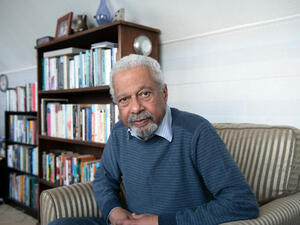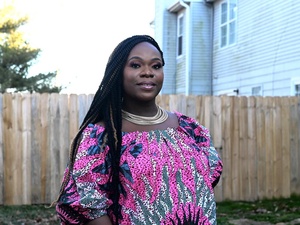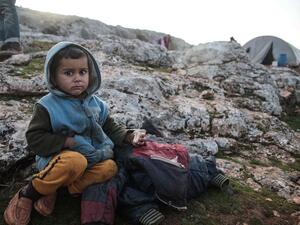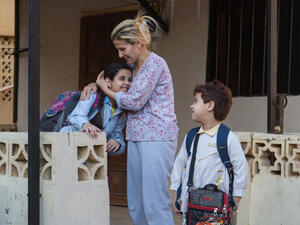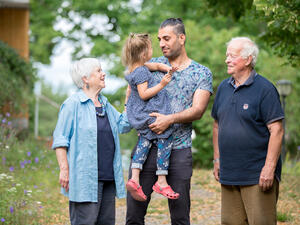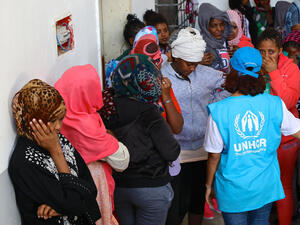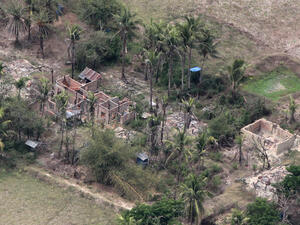Time to speed up returns to Liberia, says Lubbers
Time to speed up returns to Liberia, says Lubbers
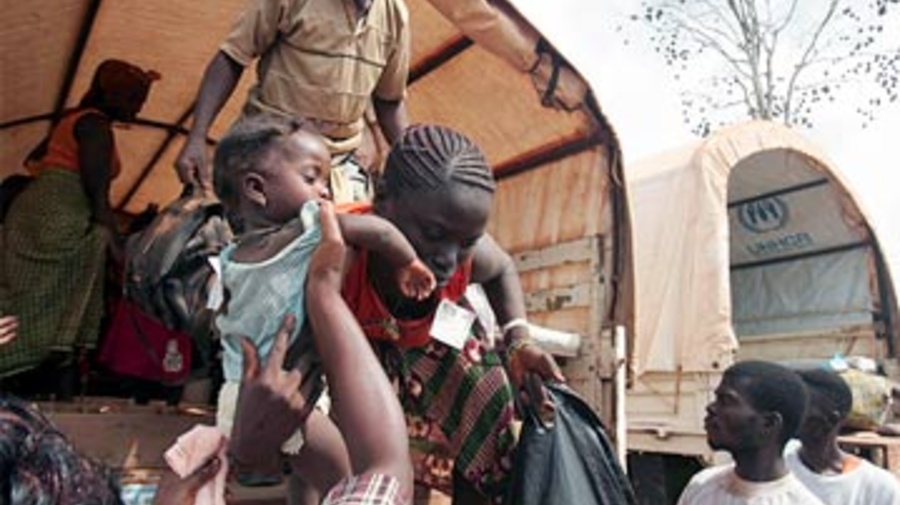
Refugee returns, like this family repatriating from Sierra Leone to Gbarnga in Liberia, can boost confidence in the Liberian peace process, says High Commissioner Ruud Lubbers.
VOINJAMA, Liberia, Feb 3 (UNHCR) - The time is right for accelerated returns to Liberia, said UN High Commissioner for Refugees Ruud Lubbers after two days of meeting returnees, talking to government officials and experiencing the peace process for himself.
Lubbers arrived in Liberia on Wednesday, following a convoy of 205 refugees as they returned home from neighbouring Sierra Leone. He visited Lofa county - located near the border with Guinea and Sierra Leone, and the largest area of return for the hundreds of thousands of Liberians displaced within and outside their country by 14 years of fighting.
Lofa is among the latest counties to be declared safe for return last week. In all, 13 out of 15 counties have been cleared for return - Bomi, Bong, Gbarpolu, Grand Bassa, Grand Cape Mount, Grand Gedeh, Lofa, Margibi, Maryland, Montserrado, Nimba, River Cess and River Gee.
When the High Commissioner last visited Liberia in May 2004, he advised refugees against rushing home on their own before their war-torn country was ready to receive them. Re-assessing return conditions this year convinced him that the situation has improved sufficiently to enable more returns.
"It's time to accelerate the repatriation movement," Lubbers told Gyude Bryant, Chairman of Liberia's National Transitional Government, as well as government ministers and UN officials in Monrovia on Thursday. He also invited UNHCR staff to intensify the ongoing information campaign telling refugees about return conditions, adding that larger returns would boost Liberians' confidence in the peace process.
"I'm very glad to see that the war in Liberia is over and that people are building peace together," Lubbers said in Voinjama on Thursday as he opened a high school as part of UNHCR's community empowerment project.
Among the many people he met was Jonhson Sarkor, a demobilised child soldier who lost his right arm at the height of the fighting in Voinjama in 2000.
"The children born during the war never had a chance to go to school. They had to stop school and run with their families," said the ex-combatant. "But the most unfortunate group were those who were taken by force and had to serve alongside the militia groups. Some died, yet some are scarred forever."
Now 20, Sarkor attends eight-grade at the school and is studying to be a doctor. He told Lubbers, "Thank you for giving us a chance to attend school, to play together and to grow up as children. Thank you for recognising our right to education, and for giving us the chance to smile again."
Some 7,000 Liberian refugees have returned home with UNHCR assistance since the start of facilitated repatriation in October last year. The refugee agency has also helped 30,000 internally displaced people back to their communities, and is supporting reintegration through community empowerment projects.
UNHCR plans to help more than 100,000 Liberian refugees to return from the region this year.
High Commissioner Lubbers left Liberia on Thursday for Côte d'Ivoire, the last leg of his West African tour.
By Fatoumata Kaba in Voinjama, Liberia


